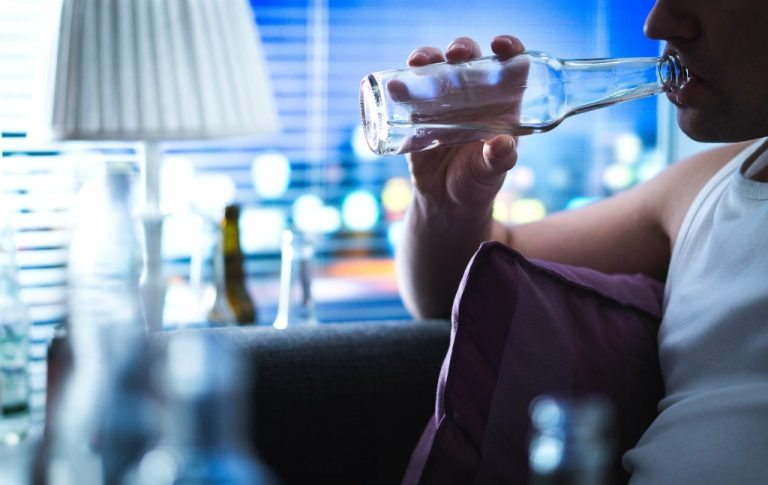Tapering off is a standard medical practice for many other drugs. For example, healthcare providers usually don’t take patients off antidepressants suddenly; rather, they gradually reduce the dosages. Alcohol is a central nervous system depressant that affects your brain.
Reach out for support
- However, quitting cold turkey or tapering is not advisable for people with an AUD.
- When they suddenly quit drinking, the brain continues its hyperactivity, but alcohol no longer suppresses the effects.
- These strategies work in different ways to help you quit drinking, and one may be more appropriate for you based on your needs.
Alcohol detox medications can make the process safer and more comfortable. They can also ensure your alcohol detox is successful by making it nigh impossible to relapse if symptoms get difficult. Additionally, the post-detox treatment resources available at a professional treatment center can ease the transition to sober living and give you the tools you need to stay sober long-term.
- Knowing how to safely taper off alcohol can make all the difference in how successful you are in quitting drinking.
- This is why many of the alcohol withdrawal symptoms seem to be related to overstimulation, like shaky hands, racing thoughts, and insomnia.
- Medications such as benzodiazepines, gabapentin, or valproate may be used adjunctively to manage persistent symptoms and support the tapering process.
- Receive encouragement from people worldwide who know exactly what you’re going through!
- Exercise releases endorphins into your brain, creating natural happy feelings within a person.
What happens to your body when you stop drinking?
Others may discover after consulting with a doctor that it’s safe for them to quit alcohol cold turkey if they choose to. However, they may still decide that tapering down feels most achievable for them. If you’re not sure if cold turkey or tapering is right for you, you can join the Monument Community to hear from others who have confronted similar questions. The reason for weaning off alcohol instead of quitting cold turkey is to reduce the severity of withdrawal symptoms. If a person abruptly stops drinking alcohol within 6 to 8 hours they will experience hyperactivity, anxiety, tremors, sweating, nausea, and confusion. Seizures are another complication of abruptly quitting alcohol that may occur within the first 12 to 48 hours of stopping.
Contaminated Drugs: What You Need to Know
Working with a medical professional to taper your alcohol consumption can help the likelihood and severity of alcohol withdrawal symptoms. Instead of quitting alcohol cold turkey, you can steadily reduce your consumption so that your body has time to gradually readjust to absence of alcohol. It’s important to note that stopping drinking can be dangerous and even life-threatening. It’s vital to speak with a medical professional before you begin weaning off alcohol to ensure you have a plan to do so safely. Alcohol tapering is a medically guided strategy for managing alcohol withdrawal symptoms.
What vitamins and supplements help with alcohol withdrawal?

Our substance information and advice library gives you the facts and information you need to know. Learn about the increase in contaminated drugs and steps you can take to reduce harm. How to use the naloxone nasal spray (Nyxoid), which reverses the effects of opioid drugs https://thebostondigest.com/top-5-advantages-of-staying-in-a-sober-living-house/ like heroin, morphine, methadone and fentanyl. Setting realistic, measurable goals will help you make small changes that add up to a big difference in your life. Also, don’t get caught off guard thinking that since one craving has stopped, another one won’t come quickly.
Can You Taper Off Alcohol Safely At Home?
However, for many people with alcohol use disorder, tapering off alcohol is a far better experience than quitting abruptly. Alcohol withdrawal can be a challenging and potentially dangerous process, requiring careful management and support. It often raises many questions, especially regarding effective strategies for managing symptoms and ensuring safety. Top 5 Advantages of Staying in a Sober Living House Let’s address some of the most frequently asked questions about alcohol withdrawal, providing insight into different aspects such as medication, home remedies, dietary considerations and more. Sunshine Behavioral Health strives to help people who are facing substance abuse, addiction, mental health disorders, or a combination of these conditions.
What helps with shakes from alcohol withdrawal?
- Quitting with proper medical supervision may be more important than whether you stop gradually or all at once.
- Besides its positive health benefits, it can help you quit drinking after weeks or months.
- These can indicate a life threatening condition called delirium tremens.
- You should always seek medical advice before attempting any kind of alcohol withdrawal.
- In medical detox, you receive around-the-clock care from doctors and nurses to help prevent and treat alcohol withdrawal symptoms and their complications.
